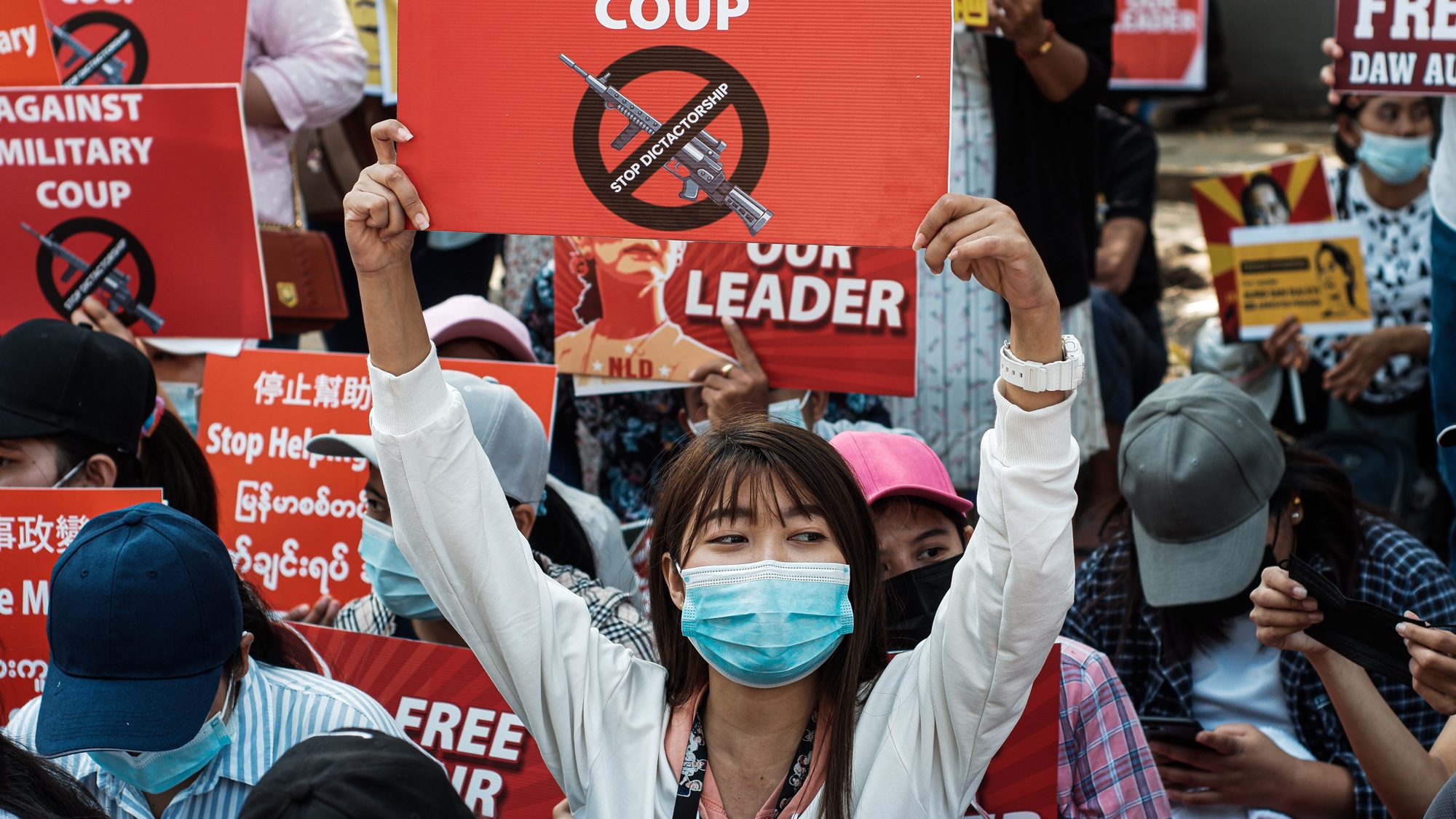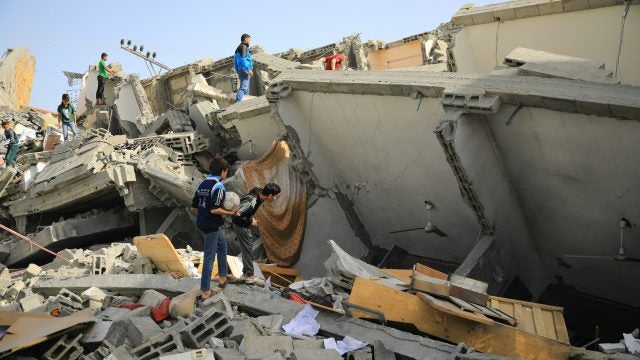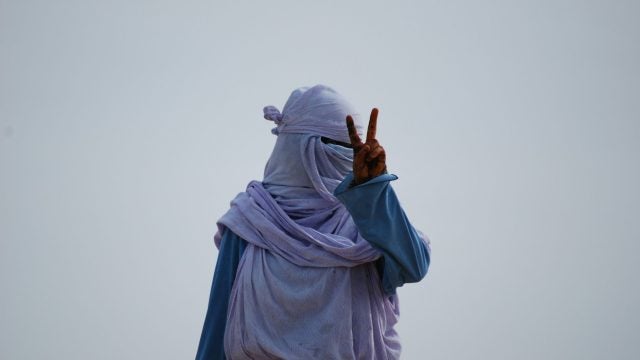The current protests also represent a rupture with past protest movements in Myanmar. The protesters’ spontaneous pivot in the first days of the mass uprising from wearing red, the color of Suu Kyi’s party, signifying a desire to return to the status quo of a nominal democratic process, to wearing black is notable. The switch to black clothing symbolizes a demand for the country to look beyond the current institutional arrangements that have promoted internal divisions. Consistent with this is the enormous banner hanging from the Yangon Student Union, declaring “There is no supreme savior.” Protestors are also demanding people look beyond the cult of personality politics, and those who seek only to bring Suu Kyi back to power will be forced to acknowledge the damage her regime has caused ethnic groups, activists, and the poor. Myanmar’s most marginalized have not lost sight of the unparalleled mendacity of the junta in retaking power after pledging to respect the constitutional process. The coup, then, delivers the final blow to the peace process with ethnic minorities, as no group will trust the junta to fulfill its pledges after the coup, an act which also creates certain political openings.
Conclusion: Toward Trans-ethnic Solidarity?
What does the future hold for Myanmar’s displaced peoples? Based on our observations of the past, it appears bleak. Thailand’s nine “temporary shelter areas,” or refugee camps, have been repatriating residents for the past decade, but they should now prepare themselves for a new onslaught of refugees from Myanmar. The Bangladeshi government expects the junta to keep its promise of repatriating refugees, but Bangladesh should instead plan on the more likely scenario: a state of effectively permanent displacement of Rohingya in their country.
However, evidence of emerging trans-ethnic solidarity between urban elites in Yangon and Rohingya refugees, between rebel leaders and labor movements, and between migrant laborers and protesters is promising. The coup is transforming multiple divergent groups into one counterpublic with an immediate goal, to undermine and crush the military dictatorship. The protestors have also united under a provocatively broader objective: to reimagine belonging and politics as becoming equitable for all ethnicities, religions, and classes in Myanmar.
To achieve this vision, the most immediate imperative is for civilians to “keep the streets,” which requires fighting a dual-front war, first against the junta and then against the factors undermining resistance, such as livelihood concerns and stoking of divisions between groups. Nascent campaigns to take local governance institutions and transform them into hubs of both resistance and survival, though the provision of resources to struggling community members, provides a chance to enact this budding inter-ethnic trans-class coalition. Doing so requires groups to resist calls to reinstall Suu Kyi and her brand of liberalism—which would risk dissolving the bonds forged in this space of exception, revealing that everyone was not in fact in the same “camp” together—and instead necessitates urban protesters to align themselves with exiled Rohingya, Karen, Tai, and other peoples who have endured crushing betrayals, yet view their own struggle in solidarity with all peoples in Myanmar.
. . .
Elliott Prasse-Freeman is an Assistant Professor at the National University of Singapore. His research is on contentious politics, ethnic conflict, and subaltern political thought in and around Myanmar.
Tani Sebro is an Assistant Professor of Global Politics at Humboldt State University and a Fulbright ASEAN U.S. Scholar. Her research interests span the subdisciplines of political ethnography, critical theory, migration, nationalism, aesthetics, and performance studies.
Image Credit: Htin Linn Aye (via Creative Commons)



